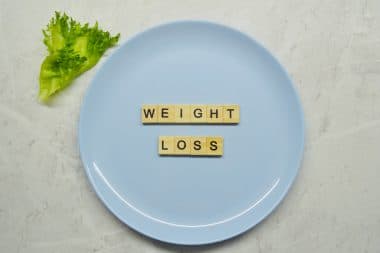The keto diet – low in carbohydrates, moderate in protein, and high in fat – is very popular among millions of people looking for a new lifestyle to get in shape and improve their physical and mental wellbeing.
Success stories involving the ketogenic diet credit this way of eating with a wide variety of benefits including impressive weight loss, lower blood pressure, reduced dependence on medication, stabilized blood sugar levels, increased fertility, better skin, stronger mental focus, and many more. It’s no wonder that this diet is generating a worldwide buzz that is getting louder and louder as the ‘food for medicine’ concept reaches the mainstream.
Although or perhaps because the keto diet is very popular and effective, there are certain myths swirling around it. It is essential to be aware of those myths and learn to separate fact from fiction instead of just believing anything about the diet. For the full story on how and why to go keto, Plan Ketogenic is a good starting place.
Here are some common myths about ketogenic diets that need to be busted.
Myth: You are always hungry.
Worried about feeling less satiated because of the lower percentage of carbohydrates in the ketogenic diet? This keto myth is far from true. In reality, once your body is adapted, the keto diet keeps you feeling fuller longer and decreases your appetite. Many find that it also reduces cravings for carb-heavy and sugary foods because they have stepped off the blood sugar roller coaster of spikes and valleys caused by typical carb-based eating.
Myth: You can’t eat fruits and vegetables.
As these foods are sources of carbohydrates, there is confusion about whether or not you can eat eat fruits and veggies on keto. The truth is that you can, although the there are certain types to stay away from. The keto diet recommends non-starchy vegetables, like cauliflower, cucumbers, zucchini, peppers, broccoli, and low-carb fruits like raspberries, strawberries, and blueberries. Other naturally low-carb vegetables and fruits include kale, broccoli, cauliflower, spinach, asparagus, avocados, lemons, and more.
Myth: You can eat unlimited bacon and cheese.
While bacon and cheese are okay to eat on a ketogenic diet as they are high in fat and moderate in protein, they are not the best food options for keto. The focus should be to eat healthy fats, like avocado, fatty fish, nuts, seeds, and olive oil, and whole, natural foods, such as leafy greens and cruciferous vegetables. So, don’t just load your plate with processed bacon and melt cheese on top of everything.
Myth: You have very limited food choices.
It is a common belief that the ketogenic diet is highly restrictive, and adherence can be difficult because of the limited food choices. That is entirely untrue as there are so many options in a keto diet, and one can pick from meats, poultry, fish, low-carb vegetables and fruits, nuts and seeds, full-fat dairy products, whole eggs, and oils like avocado, olive, and coconut. A quick internet search of keto recipes will reveal more keto-friendly meal ideas than you could imagine. Skeptical? Check out the All Recipes page dedicated to keto.
Myth: You should avoid ketogenic diets if into athletics and sports.
Another common myth surrounding ketogenic diets is that it is a bad idea for athletes as they cannot benefit from a low-carb diet. However, plenty of scientific evidence shows the ketogenic diet is beneficial for certain types of sports and athletic performance. As the body converts fat into ketones, the ketogenic state supports weight loss and systemic inflammation and supplies sustained energy over long periods of time. There are plenty of elite athletes and sportsmen who swear by the diet and have performed successfully at the professional level.
Myth: You will definitely be successful with the keto diet.
While the keto diet is considered effective for losing weight and a variety of other health benefits, the reality is that what may work on one body may not do so for another. So, just because your friend, favorite celebrity or top influencer used the keto diet successfully doesn’t mean that you will also get the same results.
According to experts, people exhibit different blood sugar responses to the same foods. That means that even if you were to eat the exact same meals as somebody else, your bodies would respond in different ways. That’s why there is no perfect solution that fits every unique person. Before going keto, be sure to consult a registered dietitian, follow a personalized diet plan, listen to your body, and adapt as necessary. For more information, check out our article on how to choose the perfect keto diet for your body type.








Reply